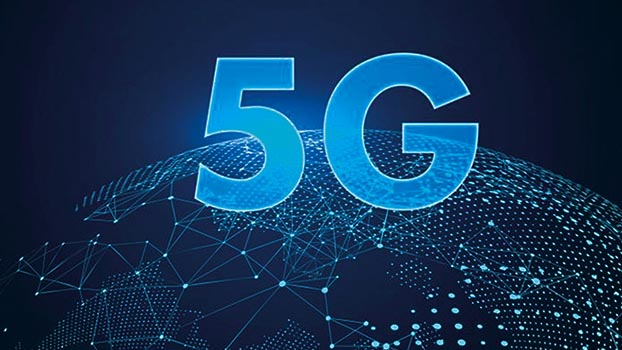Steps for 5G service

The government has taken massive steps to build 5G service infrastructure across the country including in rural areas to get the benefits of the Fourth Industrial Revolution, and the revolutionary progress in the field of information technology.
The government has always been giving importance to the information technology sector in building a digital Bangladesh, officials said, while adding that is why it is not willing to lag behind in modernization of technology to keep pace with the developed world.
While the developed countries including the United States and China are conducting full-fledged research on Fifth-generation wireless (5G) technology, Bangladesh is also preparing to build 5G technology infrastructure, they mentioned
An official of the Planning Commission said the Ministry of Posts, Telecommunications and Information Technology is undertaking a project to modernize the existing core and transmission networks to expand the 5G mobile network to the village level.
In this case, the network of local mobile service provider Teletalk will be expanded and modernized, he added.
The project proposal has been sent to the Planning Commission, he informed.
The project is ready to be presented at the next meeting of the Executive Committee of the National Economic Council (ECNEC), he said adding that, if approved, the project will be implemented by Teletalk Bangladesh Limited from this year to November 2023 at a cost of Tk 2,204.39 crore.
In this regard, Mamun-al-Rashid, a member of the Physical Infrastructure Department of the Planning Commission in charge of the project, said if the project is implemented, the people of rural areas will be the first to come under 4G mobile network.
At the same time, modernization of core and transmission networks in rural areas will make them suitable for providing 5G technology services, he added.
As a result, if 5G mobile network is launched in the country, people of these areas will also be able to take 5G service, he mentioned.
According to the latest data from the Bangladesh Telecommunications Regulatory Commission (BTRC) last May, the number of mobile phone subscribers in the country is 17.52 crore.
On the other hand, the number of internet users in the country is 11.73 crore.
Of these, more than 10.70 crore people use mobile internet.
There are less than one crore broadband internet users.
Again the cost of mobile internet is high but the purchasing power of people in rural areas is low.
As a result, the level of internet use is less in rural areas.
Internet service providers are also less interested in spreading broadband internet connection in these areas.
As part of its move, the government is taking the project worth Tk 2,204.39 crore with the aim of spreading high-speed 5G internet at low cost in the near future through Teletalk in rural areas.
Under the project, Teletalk's existing limited coverage of the 4G network will be extended to the unions.
Through this, especially in rural areas, it will be possible to provide high speed 4G Internet at low cost and affordable price and later, it will provide 5G service.
Under the proposed project, 3,000 new BTS sites will be created as well as Teletalk's own 500 sites.
At the same time, 2,500 tower sharing sites will also be created.
In addition, the existing 2,000 3G or 4G mobile BTS site equipment will be modernized to enhance customer service capacity under the project.
In addition, the sites will be modernized by replacing the existing 200 mobile BTS, 4G BTS will be added to the existing 1,000 2G or 3G mobile BTS sites.
In addition to installing 5,000 FWA devices to provide internet services to government offices, hospitals and educational institutions through the installation of fixed wireless access technology, IP long-haul and short-haul microwave links will also be set up.
There will also be other work related to core network expansion and core IP backbone network expansion.




